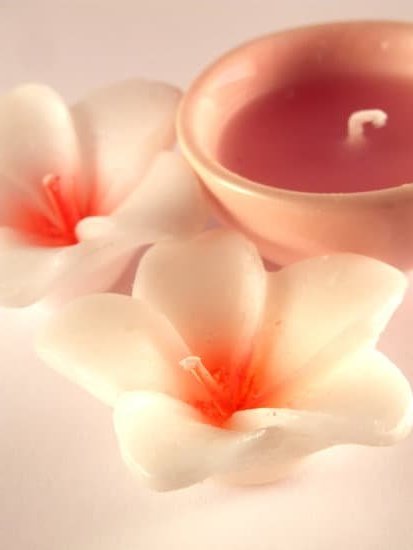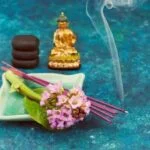Essential oils aromatherapy is a holistic healing treatment utilizing plant extracts to promote overall well-being. These potent oils are derived from various parts of plants and are known for their therapeutic properties. Aromatherapy has been used for centuries across different cultures for its physical, emotional, and spiritual benefits.
The practice of using essential oils dates back to ancient civilizations like Egypt, Greece, and China where they were used for medicinal purposes, skincare, and religious ceremonies. The term “aromatherapy” itself was coined in the 20th century by French chemist René-Maurice Gattefossé when he discovered the healing properties of lavender oil after accidentally burning himself.
Essential oils aromatherapy offers a wide range of benefits such as stress relief, improved mood, relaxation, better sleep quality, pain management, and immune support. Each essential oil possesses unique properties that target specific ailments or concerns. The versatility of these oils allows for personalized blends tailored to individual needs and preferences.
History of Essential Oils and Aromatherapy
The history of essential oils and aromatherapy dates back to ancient civilizations such as the Egyptians, Greeks, and Romans who used aromatic plant extracts for both medicinal and spiritual purposes. Essential oils were considered sacred substances with potent healing properties that were believed to help balance the body, mind, and spirit. These civilizations used essential oils in various forms, including perfumes, cosmetics, and medicinal remedies.
Early Uses of Essential Oils
In ancient Egypt, essential oils like frankincense and myrrh were used in religious ceremonies and rituals. The Egyptians also incorporated essential oils into their embalming process to preserve the bodies of the deceased. The Greeks and Romans utilized essential oils for their therapeutic benefits by creating herbal blends for massage oils, baths, and inhalation. These early civilizations laid the foundation for the practice of aromatherapy we know today.
Renaissance Revival
During the Renaissance period, interest in herbal medicine was revived in Europe, leading to a resurgence in the use of essential oils for health and well-being. Scholars like Paracelsus explored the healing properties of plants and developed techniques for extracting essential oils through distillation. This era marked a significant turning point in the history of aromatherapy as essential oils gained recognition for their medicinal value.
Modern Developments
In the 20th century, French chemist René-Maurice Gattefossé coined the term “aromatherapy” after experiencing firsthand the healing effects of lavender oil on a burn injury. His research paved the way for scientific studies on essential oils and their practical applications in healthcare.
Today, aromatherapy has evolved into a holistic practice that promotes overall wellness through the therapeutic use of essential oils. Its rich historical background continues to influence how essential oils are incorporated into modern lifestyle practices and alternative medicine therapies.
Benefits of Essential Oils Aromatherapy
Essential oils aromatherapy offers a wide range of benefits for both physical and mental well-being. By harnessing the natural properties of plant extracts, essential oils can be used to promote relaxation, alleviate stress, improve concentration, and even boost immune function. Here are some key benefits of incorporating essential oils aromatherapy into your daily routine:
- Stress Relief: Essential oils like lavender, chamomile, and clary sage are known for their calming effects on the mind and body. Diffusing these oils or using them in a relaxing bath can help reduce stress levels and promote a sense of relaxation.
- Improved Sleep: Certain essential oils, such as lavender and cedarwood, have sedative properties that can aid in promoting better sleep quality. By diffusing these oils in the bedroom or using them in a bedtime routine, you may experience improved sleep patterns.
- Mood Enhancement: Citrus essential oils like lemon, orange, and grapefruit are known for their uplifting and energizing effects. Using these oils in a diffuser or as part of a personal inhaler can help improve mood and increase feelings of positivity.
In addition to these benefits, essential oils aromatherapy can also be used to alleviate symptoms of common ailments such as headaches, digestive issues, and respiratory congestion. The therapeutic properties of essential oils make them versatile tools for promoting overall wellness. Whether you choose to use essential oils through diffusion, topical application, or inhalation, incorporating them into your daily routine can have a positive impact on your health and well-being.
Overall, the use of essential oils aromatherapy provides a natural and holistic approach to enhancing both physical and emotional health. With their powerful therapeutic properties and pleasant scents, essential oils have become popular tools for self-care practices around the world. By understanding the benefits of different types of essential oils and how to use them safely and effectively, individuals can harness the healing potential of these plant extracts in their daily lives.
Different Types of Essential Oils Used in Aromatherapy
Lavender Essential Oil
One of the most popular essential oils used in aromatherapy is lavender essential oil. It is known for its calming and relaxing properties, making it ideal for reducing stress and promoting sleep. Lavender essential oil can also help alleviate headaches and migraines when used in a diffuser or applied topically with a carrier oil. Its pleasant floral scent makes it a favorite choice for many enthusiasts of essential oils aromatherapy.
Peppermint Essential Oil
Another commonly used essential oil in aromatherapy is peppermint essential oil. This invigorating oil is great for boosting energy levels and improving focus and concentration. Peppermint essential oil can also help relieve nausea, muscle pain, and respiratory issues when diffused or applied topically. Its minty aroma provides a refreshing and cooling effect, making it a versatile option for various ailments and wellness purposes.
Tea Tree Essential Oil
Tea tree essential oil is renowned for its antimicrobial and immune-boosting properties, making it a valuable addition to any aromatherapy collection. This powerful oil can help combat infections, soothe skin irritations, and promote overall well-being when used in a diffuser or mixed with a carrier oil for topical application.
The distinctively medicinal scent of tea tree essential oil may be slightly intense for some individuals, but its numerous benefits make it worth considering for those seeking natural remedies through essential oils aromatherapy.
How to Use Essential Oils for Aromatherapy
Essential oils have been used for centuries in aromatherapy due to their therapeutic properties and pleasant fragrances. Understanding how to use essential oils properly is crucial to maximize their benefits. There are several ways to incorporate essential oils into your daily routine for aromatherapy, each with its unique advantages.
One of the most common methods of using essential oils is through diffusers. These devices disperse the oil particles into the air, allowing you to inhale the aroma. Inhalation is a quick and effective way for essential oils aromatherapy to enter your system and influence your mood and emotions positively. Additionally, inhaling essential oils can also provide respiratory support and improve overall well-being.
Another popular way to use essential oils for aromatherapy is through topical application. When diluted with a carrier oil, such as coconut or jojoba oil, essential oils can be applied directly onto the skin through massage or added to bathwater.
This method allows the oil to be absorbed through the skin, providing localized relief or promoting relaxation throughout the body. It is important to perform a patch test before applying essential oils topically to ensure that you do not have any adverse reactions.
| Methods of Using Essential Oils | Advantages |
|---|---|
| Diffusion | Quick absorption into the system, influences mood positively |
| Topical Application | Localized relief, promotes relaxation throughout the body |
Popular Aromatherapy Techniques and Practices
Aromatherapy is a popular holistic healing treatment that uses natural plant extracts, such as essential oils, to promote overall well-being. There are various techniques and practices involved in aromatherapy that have been used for centuries. One common technique is inhalation therapy, where the aroma of essential oils is inhaled through the nose. This method can help reduce stress, improve sleep quality, and even alleviate symptoms of anxiety or depression.
Another popular practice in aromatherapy is topical application. Essential oils are diluted with carrier oils and applied directly to the skin through massages or baths. This allows the oils to be absorbed into the bloodstream and provide therapeutic benefits. From lavender for relaxation to peppermint for headaches, each essential oil has its own unique properties that make it suitable for different conditions.
Furthermore, diffusers are commonly used in aromatherapy to spread the fragrance of essential oils throughout a room. Diffusing essential oils not only freshens up the air but also creates a calming atmosphere. The diffusion method is effective in providing respiratory support and purifying the air. Whether you choose to inhale, apply topically, or diffuse essential oils, incorporating these techniques into your daily routine can have significant health benefits.
| Benefits of Essential Oils Aromatherapy | Different Types of Essential Oils Used in Aromatherapy |
|---|---|
| Reduced Stress | Lavender Oil |
| Improved Sleep Quality | Peppermint Oil |
| Alleviation of Anxiety and Depression Symptoms | Eucalyptus Oil |
Safety Precautions and Considerations When Using Essential Oils
Essential oils are natural extracts derived from plants, flowers, and herbs that have been used for centuries for their therapeutic properties. When it comes to using essential oils in aromatherapy, it is important to take certain safety precautions and considerations into account to ensure a safe and effective experience. Here are some guidelines to keep in mind when incorporating essential oils into your daily routine:
- Dilution: Essential oils are highly potent and should never be applied directly to the skin without being diluted. It is recommended to mix them with a carrier oil such as almond or coconut oil before applying topically.
- Patch Test: Before using a new essential oil, perform a patch test on a small area of skin to check for any potential allergic reactions or sensitivities.
- Avoid Ingestion: While some essential oils can be ingested under the supervision of a qualified aromatherapist, most are meant for external use only. Never ingest essential oils without proper guidance.
In addition to these safety precautions, it is crucial to consider the quality of the essential oils you are using. Opt for pure, therapeutic-grade essential oils from reputable brands to ensure that you are getting the full benefits without any harmful additives.
Incorporating Essential Oils Aromatherapy Into Daily Routine
Once you have familiarized yourself with the safety precautions and considerations associated with using essential oils in aromatherapy, you can start incorporating them into your daily routine. Here are some simple ways to enjoy the benefits of essential oils throughout your day:
- Diffuser: Add a few drops of your favorite essential oil to a diffuser and enjoy the aroma as it fills the room.
- Bath: Mix a few drops of essential oil with Epsom salts before adding it to your bathwater for a relaxing soak.
- Morning Routine: Apply a diluted blend of uplifting essential oils like citrus or peppermint on your pulse points as part of your morning self-care routine.
By following these safety precautions and integrating essential oils into your daily routine, you can experience firsthand the power they hold in enhancing your overall well-being through aromatherapy.
Incorporating Essential Oils Aromatherapy Into Daily Routine
Incorporating essential oils aromatherapy into your daily routine can offer a myriad of benefits for both your physical and mental well-being. Whether you are looking to boost your mood, alleviate stress, or simply enhance the ambiance of your living space, essential oils can be a valuable addition to your daily self-care practices. By understanding how to effectively incorporate essential oils into your routine, you can harness their therapeutic properties and enjoy a more balanced and harmonious lifestyle.
One simple way to incorporate essential oils into your daily routine is through the use of diffusers. Diffusers work by dispersing the aromatic molecules of essential oils into the air, allowing you to breathe in their healing properties throughout the day. Whether you place a diffuser in your home office for increased focus and productivity or in your bedroom for better sleep quality, this method of aromatherapy can have a significant impact on your overall well-being.
Another popular way to incorporate essential oils aromatherapy into your daily routine is through topical application. By diluting essential oils with carrier oils such as coconut or jojoba oil, you can create custom blends that can be applied directly to the skin.
This method allows for targeted relief from various ailments, such as muscle tension, headaches, or skin conditions. Additionally, incorporating essential oils into massage oils or bath salts can provide a luxurious and rejuvenating self-care experience that promotes relaxation and stress relief after a long day.
Conclusion
In conclusion, essential oils aromatherapy is a powerful practice that has been utilized for centuries to promote overall well-being and enhance both physical and mental health. The history of essential oils and aromatherapy dates back to ancient civilizations, where they were revered for their healing properties. Today, essential oils are popularly used in various forms of aromatherapy to address an array of issues such as stress reduction, improved sleep, pain management, and even skincare.
The benefits of essential oils aromatherapy are vast and diverse, offering a natural alternative to traditional medicine for those seeking holistic wellness solutions. Different types of essential oils used in aromatherapy each hold unique therapeutic properties, catering to individual needs and preferences. From lavender for relaxation to peppermint for energy boost, the possibilities are endless in harnessing the power of nature’s extracts for personal wellness.
When incorporating essential oils into daily routines, it is crucial to prioritize safety precautions and considerations to prevent adverse reactions or misuse. Proper usage guidelines should always be followed to maximize the benefits of essential oils without risking any potential harm. By understanding how to use essential oils effectively in aromatherapy practices, individuals can experience the full potential of these natural remedies in promoting a healthy body, mind, and spirit.
Frequently Asked Questions
What Is the Difference Between Essential Oils and Aromatherapy Oils?
Essential oils are pure, concentrated extracts derived from plants through distillation or mechanical pressing. They contain the essence of the plant and are highly concentrated. Aromatherapy oils, on the other hand, may not be as pure and can contain synthetic fragrances or dilutions.
Are Essential Oils Aromatherapy Safe?
Essential oils used in aromatherapy can be safe when used properly and in moderation. It is crucial to follow guidelines for dilution and application to prevent skin irritation or sensitivities. Some essential oils are not safe for children, pregnant women, or pets.
What Are the Examples of Essential Oils and Their Uses in Aromatherapy?
Examples of essential oils commonly used in aromatherapy include lavender, peppermint, tea tree, eucalyptus, and lemon. Lavender is known for its calming properties, while peppermint is often used for its energizing effects. Tea tree oil is popular for its antibacterial properties, eucalyptus for congestion relief, and lemon for uplifting mood and purifying air.

Are you looking for a natural way to improve your health and wellbeing?
If so, aromatherapy may be the answer for you.





